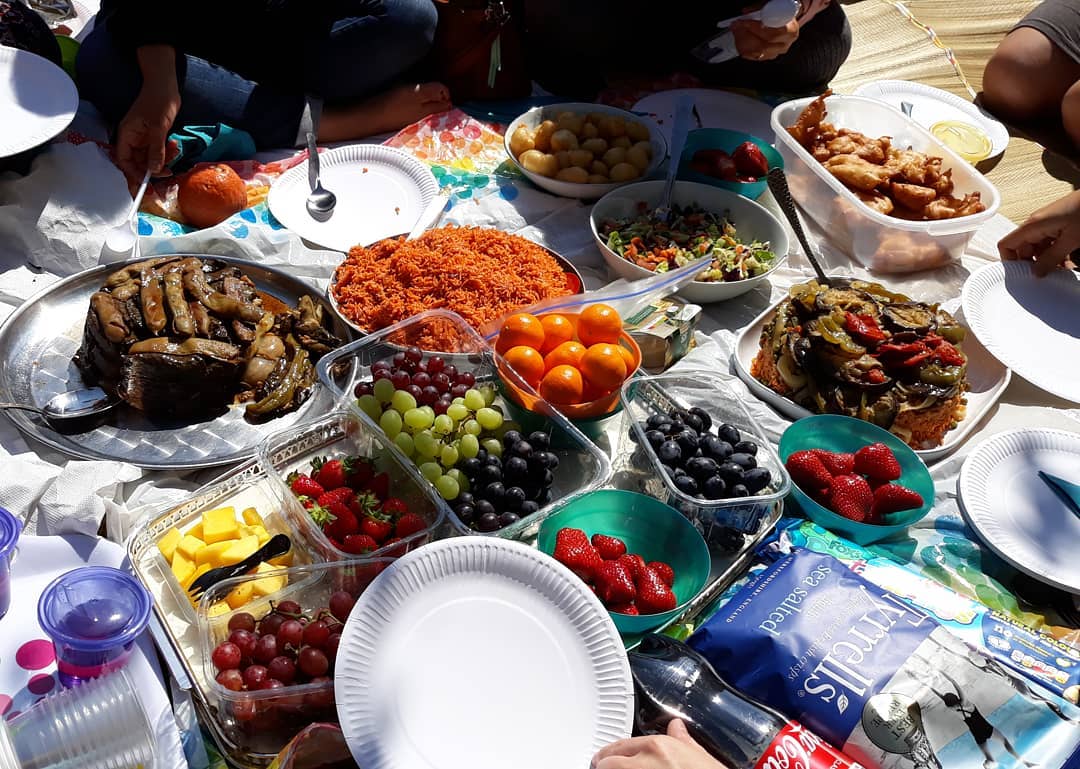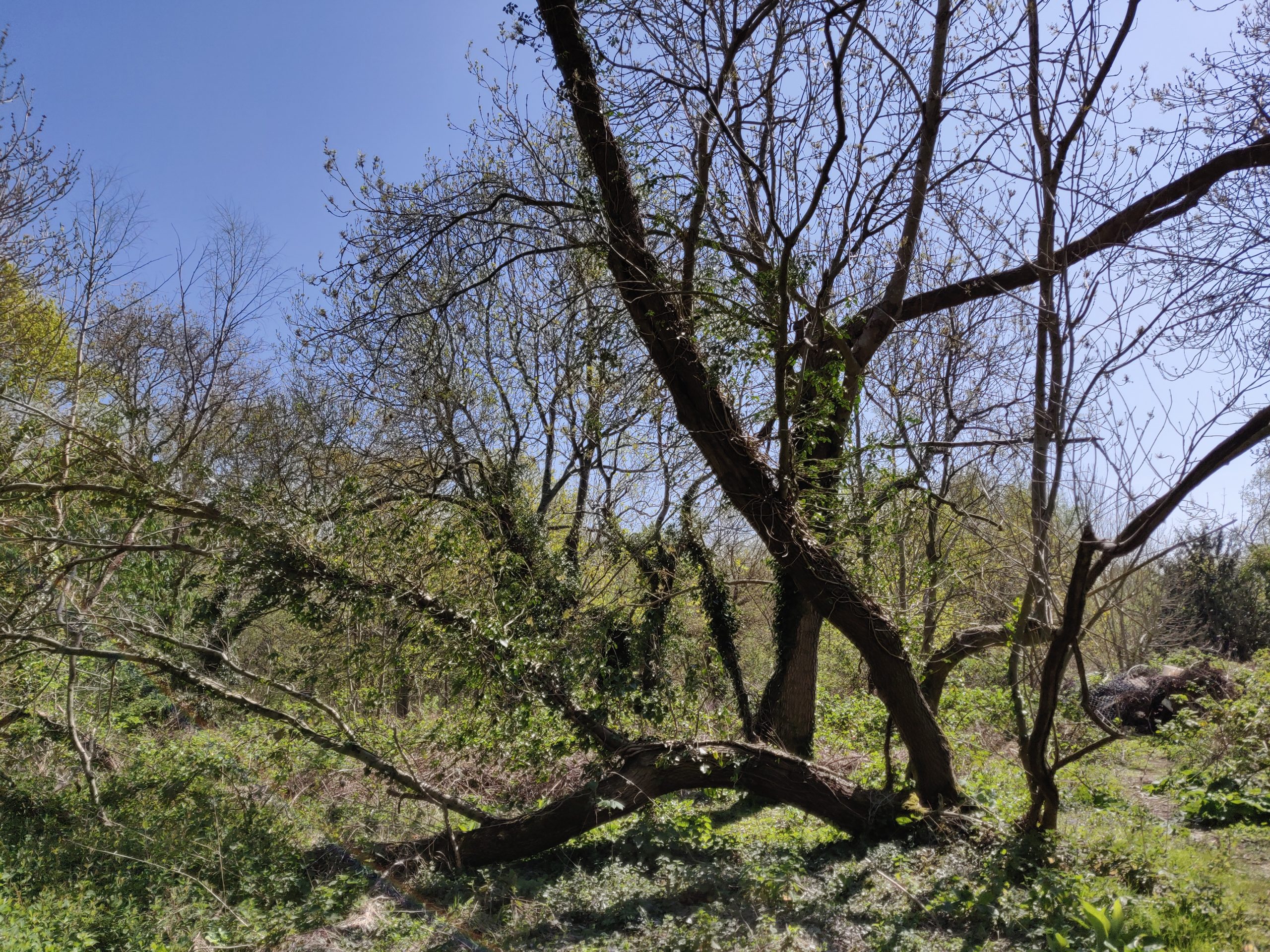April 2020
Drawing Parallels; what COVID-19 has taught me about refugees
When COVID-19 arrived in the UK it all became a bit more real to me after I walked into the supermarket to find shelves of basic items such as pasta, rice and toilet paper empty. The kneejerk reaction for many people was to panic-buy essential items, or even hoard them. As the number of COVID-19 cases in […]

ICN Ladies’ Conversation Corner Summer Picnic 2019
When COVID-19 arrived in the UK it all became a bit more real to me after I walked into the supermarket to find shelves of basic items such as pasta, rice and toilet paper empty. The kneejerk reaction for many people was to panic-buy essential items, or even hoard them. As the number of COVID-19 cases in the UK increased, many began to question the government’s preparedness for the pandemic. There were concerns for the most vulnerable in our communities and families.
As the lockdown and the call for social distancing was implemented, we had to adjust to our ‘new normal’, taking extra precautions to wash our hands thoroughly and more often, and possibly to wear a mask when doing the food shopping. All of a sudden, our own environment no longer felt safe. Scenes from science fiction films became the new normal.
Many of us started to create a safe bubble at home for ourselves and our immediate family. As the lockdown continued reality began to sink in that this may go on much longer than we first anticipated, and things might never go back to the old normal. Concerns arose as to how this will affect our jobs and the economy. As we began to miss family and friends, it no longer felt like a much-earned rest. Contact with others only through social media and Zoom is just not the same.
I have had a lot of time to reflect and think about what COVID-19 has revealed:
- How fragile our systems are (NHS, political and economic, etc)
- That no matter how individualistic our culture is, our choices affect others not only locally but around the world
- How generous or selfish we are
- The best and worst in us
- That borders mean nothing to viruses
Our response to COVID-19 should also help us to be more understanding of refugees, asylum seekers and vulnerable migrants who flee their country for safety due to war, natural disaster, or economic crisis. When faced with danger we as humans will do whatever it takes to make sure our family is safe.
For those who have already fled to the UK for safety and made their home here, they may now feel that nowhere is safe. The trauma they have experienced from war may resurface. They tell us that they are always concerned for family they left behind and are not able to visit.
You may feel this paints a discouraging picture at first glance, but it demonstrates why it is so important for the staff of ICN to continue supporting refugees, asylum seekers and vulnerable migrants through this crisis. That may look different for each of us as we work from home, but we continue to seek out creatives ways to engage with those who we have helped to rebuild their lives in Bournemouth, Christchurch and Poole.
As support worker for ICN, my typical week in normal times includes leading a Tuesday morning Ladies’ Conversation Corner where women can come to practise their English and build friendships. Each week we have a different activity, which may involve art, crafts, culture and food. We meet weekly to provide a safe place where the ladies can come and be themselves and receive friendship and support. The rest of my week is filled with home visits and two homework clubs. I count it an honour and privilege to love and care for these families who have taught me about strength and resilience. I very much look forward to the day when we can gather again, and I hope it can include hugs, music, dancing and food from around the world.
Anita Dalkin – Support Worker for Women & Families
23 April 2020
April 2020
Easter Reflections 2020
We are all a little out of our regular routines at the moment, I think. The past month has been one of transition, uncertainty and probably anxiety for many, as what is “normal” shifts into something new. At ICN, staff have had to adjust to working almost entirely from home. Some are able to still fill their working hours; […]

We are all a little out of our regular routines at the moment, I think. The past month has been one of transition, uncertainty and probably anxiety for many, as what is “normal” shifts into something new.
At ICN, staff have had to adjust to working almost entirely from home. Some are able to still fill their working hours; some have had to accept that, for now, they no longer can. Staff management looks different when those you are managing are scattered and no longer all in the same office. Staff meetings and devotions are now on Zoom and communication has had to take on a new level of intentionality. Support work – so fundamentally based on being physically present for those we work with – has now taken a different shape of countless WhatsApp messages, video calls, coordinating three way phone calls with service providers and interpreters, no more home visits (for the time being) and a lot more desk time for us staff!
And amid all this comes Easter. I will admit that it crept up on me somewhat this year. Without so many of the traditional ‘markers’ that we normally observe at church services and small groups during the lead-up, it was Maundy Thursday by the time it sank in that we were going into the Easter weekend. Yet how appropriate that we should celebrate something so disruptive, uncomfortable, and transformational at a time like this. How appropriate that we should celebrate the final victory over death at a time when it seems death is winning. Christ rose from the dead in the same way that he was born – with no fanfare and no audience. After his resurrection he appeared in person to his disciples, a group of people who were choosing to stay indoors for their own safety. Sound familiar? Of course it’s not exactly the same situation, but I find it a reassuring parallel. Just because we cannot go out and about or go to church on a Sunday morning we are no further from the Lord than we used to be. It says in John 20:19 that when he met with the disciples after the resurrection the doors to the room they had gathered in were all locked. There was no way in, and yet this posed to no barrier to the resurrected Christ. If he can overcome this physical obstacle whilst on earth, we can have total confidence that a lock-down also poses no barrier to the risen and ascended Christ. God is still meeting with every believer watching an online church service, with others or alone. He is meeting with every non-believer who clicks on the link shared by their Christian friend on Facebook “just to check it out”. He is meeting with every person of every race and religion who, in desperation, calls out to a God they don’t know or don’t believe in when they are facing anxiety, illness and loneliness.
At ICN we believe that God is working in this time, that God is comforting those experiencing illness and grief and fear. We believe that He is building His people up and that when we seek Him we will find Him. And to that end, we will also continue to work for Him. We will continue to teach, to support, and to love those we encounter through our work. We will adapt as individuals and as an organisation, and we will do our best to keep you updated with how we do this, and how you can support us. Our intention is that these blog posts will be a way of doing just that – we hope to give you a flavour of what we, as staff, get up to on a daily basis – both on a “normal” day and also during this period of change. We also want to be able to reflect on the heart behind what we do and give our staff the opportunity to share with you what motivates and encourages them in their work. We are so grateful for the prayers, the encouragement and the support you provide, both financially and otherwise. If you do feel led to give to us financially, you can do so at any time through the Donate page on our website. We thank you again for standing with us in this work.
Rachael Sawers – SVPRS Support Worker
16 April 2020

